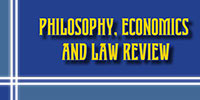Vitalii MUDRAKOV, Olena HAPCHENKO, Svitlana KOZACHENKO
MUDRAKOV V., HAPCHENKO O., KOZACHENKO S. (2023), COMMON SENSE AS IDENTITY HEALTH: TOWARD A REFLECTION ON THE RUSSIAN-UKRAINIAN WAR.
PHILOSOPHY, ECONOMICS AND LAW REVIEW. Volume 3, no. 2, 25-32
DOI: 10.31733/2786-491X-2023-2-25-32
Abstract. In the broadest sense, the purpose of the article can be defined as outlining the relationship between common sense and national identity in the context of the russian-Ukrainian war. The subject specificity emphasizes the problem of forming and nurturing the mental field of modern russians as a painful state of their identity: common sense as a marker of identity health. The article structurally reflects and develops the idea of the study of common sense as a phenomenon that affects the formation of identity, which was first presented in the study “Identity Security: from the Problems of Sectoral Definition to the Peculiarities of Didactic Definition” (ISBN: 978-617-7600-61-8).
The methodological basis is the phenomenological guideline for direct study of the situation, which in this study is specified as a systematic analysis of experience that conveys value and political priorities.
The authors propose three contexts of analysis – semantic, practical philosophy, and philosophy of knowledge – according to which they establish criteria for determining the state of health of identity. Concluding that it is important to constantly analyze the mental field of modern russians, the authors point out that this is a matter for a special research complex of human security. The conclusion is the thesis that the modern russian identity is “sick” with a worldview disease, and that its “treatment” must take place through the shared responsibility of all russians, through their repentance and rethinking.
The key provisions of the article were developed in an ongoing discussion and academic dialog between the authors.
Keywords: war, ideology, common sense, identity, identity security.
References
- Briuzher, F. (2013). Common sense. Yevropeiskyi slovnyk filosofii: Leksykon neperekladnostei [Common sense. European Dictionary of Philosophies: A lexicon of untranslatability], ІІІ, pp. 76-79. [in Ukr.].
- Duncker, C. (2006). Kritische Reflexionen des Ideologiebegriffes: zur Bedeutung der Ideologien für den Menschen. London: Turnshare.
- Fokht, Ye. (2022, April 27). “Ne vse tak odnoznachno”. Yak i chomu rosiiany vypravdovuiut viinu proty Ukrainy [“Not everything is so clear”. How and why russians justify the war against Ukraine.]. BBC NEWS Ukraine. URL : https://www.bbc.com/ ukrainian/features-61245860. [in Ukr.].
- Habermas, J. (1981). Theorie des kommunikativen Handelns (Vol. I). Frankfurt am Main: Suhrkamp.
- Hume, D. (2003). Traktat pro lyuds’ku pryrodu yak ponyattya [Treatise on human nature as a concept]. (P. Nasada, Trans.) Kyiv: Universe. [in Ukr.].
- Kaldor, M. (1999). New and old Wars: Organized Violence in a Global Era. Cambridge: Polity Press.
- Lucas, E. (2022, June 20). We need different experts to crack Russia. The Times. URL : https://www.thetimes.co.uk/article/we-need-different-experts-to-crack-russia-g6mvblqb9.
- Mudrakov, V. (2022). Humanitarna bezpeka: vid problem haluzevoi vyznachenosti do osoblyvostei dydaktychnoi vyznachenosti [Identity Security: From the Problems of Sectoral Definition to the Peculiarities of Didactic Definition]. In V. Mudrakov (Ed.), Fenomen bezpeky: sotsialno-humanitarni vymiry [The Phenomenon of Security: Social and Humanitarian Dimensions] (pp. 309-331). Khmelnytskyi: FOP Melnyk A.A. URL : http://elar.khmnu.edu.ua/ jspui/handle/123456789/12513. [in Ukr.].
- Mudrakov, V. (2022). Vstup [Introduction]. In V. Mudrakov (Ed.), Fenomen bezpeky: sotsialno humanitarni vymiry [The Phenomenon of Security: Social and Humanitarian Dimensions], pp. 9-13, Khmelnytskyi: FOP Melnyk A.A. URL : http://elar.khmnu.edu.ua/jspui/handle/123456789/12513. [in Ukr.].
- Mudrakov, V. (2023). Identity markers of writing: methodological tools for researching the war of identities. Philosophy and Political Science in the Context of Modern Culture, 15(1), pp. 31-37. Doi : https://doi.org/10.15421/352304. [in Ukr.].
- Mudrakov, V., Liutko, N., & Pavlyk, О. (2023). “Liudiane” ta “ideolohichne”: do osmyslennia rosiisko-ukrainskoi viiny v katehoriiakh identychnosti [“Human” and “Ideological”: Toward an Understanding of the russian-Ukrainian War in Terms of Identity]. Naukovyi visnyk Dnipropetrovskoho derzhavnoho universytetu vnutrishnikh sprav [Scientific Bulletin of Dnipropetrovs’k State University of Internal Affairs](2), pp. 106-114. Doi : https://doi.org/10.31733/2078-3566-2023-2-106-114. [in Ukr.].
- Mudrakov, V., Polischchuk, O., Popovych, V., & Mozolev, O. (2020). Identity of Homo sovieticus in Retrospective and Modernity: Value and Anthropological Objektivations of Phenomenological and Literary Senses. Annals of the University of Bucharest. Political Science, XXII(1-2), pp. 35-59.
- Peels, R., Ridder, J. d., & Woudenberg, R. v. (Eds.). (2020). Scientific Challenges to Common Sense Philosophy. New York: Routledge.
- Pepinsky, P. N. (1994). Worlds of Common Sense: Equality, Identity, and Two Modes of Impulse Management. Westport: Greenwood Press.
- Prodanović, S. (2022). The Structure of Common Sense and Its Relation to Engagement and Social Change – A Pragmatist Account. Zeitschrift für Soziologie, 51(3), pp. 211-226. Doi : https://doi.org/10.1515/zfsoz-2022-0016.
- Shaftesbury, L. (2000). Sensus Communis, an Essay on the Freedom of Wit and Humour in a Letter to a Friend. In L. Klein (Ed.), Characteristics of Men, Manners, Opinions, Times, pp. 29-69. Cambridge: Cambridge University Press. Doi : https://doi.org/10.1017/CBO9780511803284.008.
- Yermolenko, V. (2020). Plynni ideolohii. Idei ta polityka v Yevropi ХІХ-ХХ stolit [Fluid ideologies. Ideas and Politics in Europe in the Nineteenth and Twentieth Centuries]. Kyiv: Dukh i Litera. [in Ukr.].
